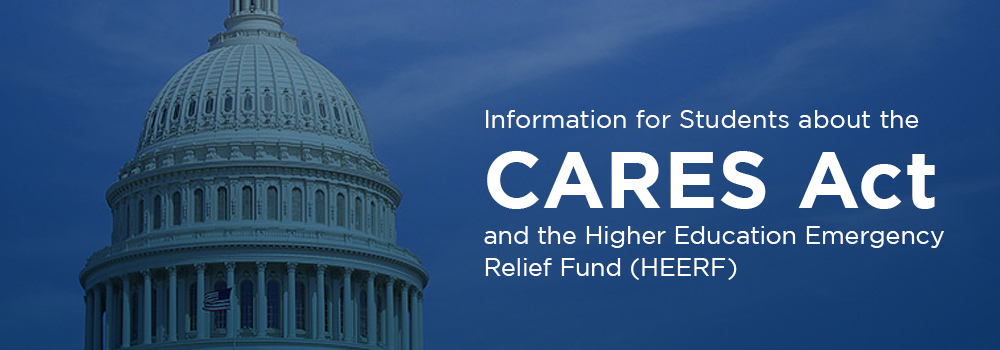CARES Act – Higher Education Emergency Relief Fund

Higher Education Emergency Relief Fund -(HEERF) CARES Act FAQ
WHAT IS THE FEDERAL CARES ACT?
The Coronavirus Aid, Relief and Economic Security (CARES) Act was signed into U.S. federal law on March 27, 2020. The Act provides financial compensation and support to multiple layers of the U.S. economy, including educational institutions.
HOW MUCH DID RBS RECEIVE IN CARES ACT
GRANT FUNDING?
The CARES Act allocated nearly $14 billion to support U.S. post-secondary educational institutions, and the U.S. Department of Education applied a complex formula to determine the amount awarded to each institution. Rosemead Beauty School (RBS) received a grant of $187,022, at least 50% of which must be used to provide emergency cash grants to qualified students who have demonstrated financial need and experienced financial hardship as a result of the COVID-19 pandemic.
WHICH STUDENTS ARE ELIGIBLE TO RECEIVE A
GRANT?
Following the passage of the CARES Act, RBS organized a task force consisting of representatives from each department to review the legislation and guidance from the U.S. Department of Education to make recommendations for the allocation and delivery of the funds to students. RBS’s senior leadership team approved the final recommendations.
Qualified students must have started instruction in one of the available programs: Cosmetology (Course #000001), Nail Care (Course #000012), Skin Care (Course #000008), Massage Therapy II (Course #000014). RBS established three groups of students who qualify for the grant, following the U.S. Department of Education guidance.
Group One: Students meeting the qualifications described above who have filed a Free Application for Federal Student Aid (FAFSA). The verification process must be complete and aid already calculated. Award amounts are based on the Expected Family Contribution (EFC) as calculated in the FAFSA.
Group Two: Students meeting the qualifications described above who are eligible to file a FAFSA but have not done so. These students must meet all of the following criteria to be eligible to file a FAFSA: are a U.S. citizen or eligible non-citizen; have a valid Social Security number; have registered with the U.S. Selective Service if the student is male; have a high school diploma or GED, or have completed high school in an approved homeschool setting.
Group Three: Students who are enrolled in one of the programs described above and have demonstrated a need for additional support beyond the award for Group One or Two. The need must be for expenses such as food, housing, course materials, technology, health care, child care,
and other hardships as a result of this crisis. These students can apply for an additional emergency grant by submitting a written request describing how the disruption of campus operations due to COVID-19 has created unexpected costs associated with their enrollment. RBS will allocate funds based on the student’s stated needs and documented expenses until the
funding is exhausted.
HOW WILL QUALIFIED STUDENTS BE NOTIFIED
AND RECEIVE FUNDS?
Students will be notified via a secured email. Students must then complete the “Higher Education Emergency Relief Fund” certification form and return it to RBS. A check will be mailed to the student or pick up at the school location within 30 days.
ARE THERE LIMITATIONS ON HOW STUDENTS
CAN SPEND THE MONEY?
As outlined by the U.S. Department of Education, students must use the funds for expenses related to the disruption of campus operations due to coronavirus, such as food, housing, course materials, technology, health care, and child-care expenses.
HOW MANY EMERGENCY GRANTS HAS RBS
DISTRIBUTED?
RBS_-HEERF-Fund-Report_09-22-20_Q4_Final Report -Same as 2020 Q3
heerf-quarterly-reporting-v131_RBS_12-31-20_School Portion
quarterly-reporting-v131_RBS_03-31-21_School Portion
quarterly-reporting-v131_RBS_06-30-21_School Portion
quarterly-reporting-v131_RBS_09-30-21_School Portion
heerf-quarterly-reporting-v131_RBS_12-31-21_School Portion_Final Report
